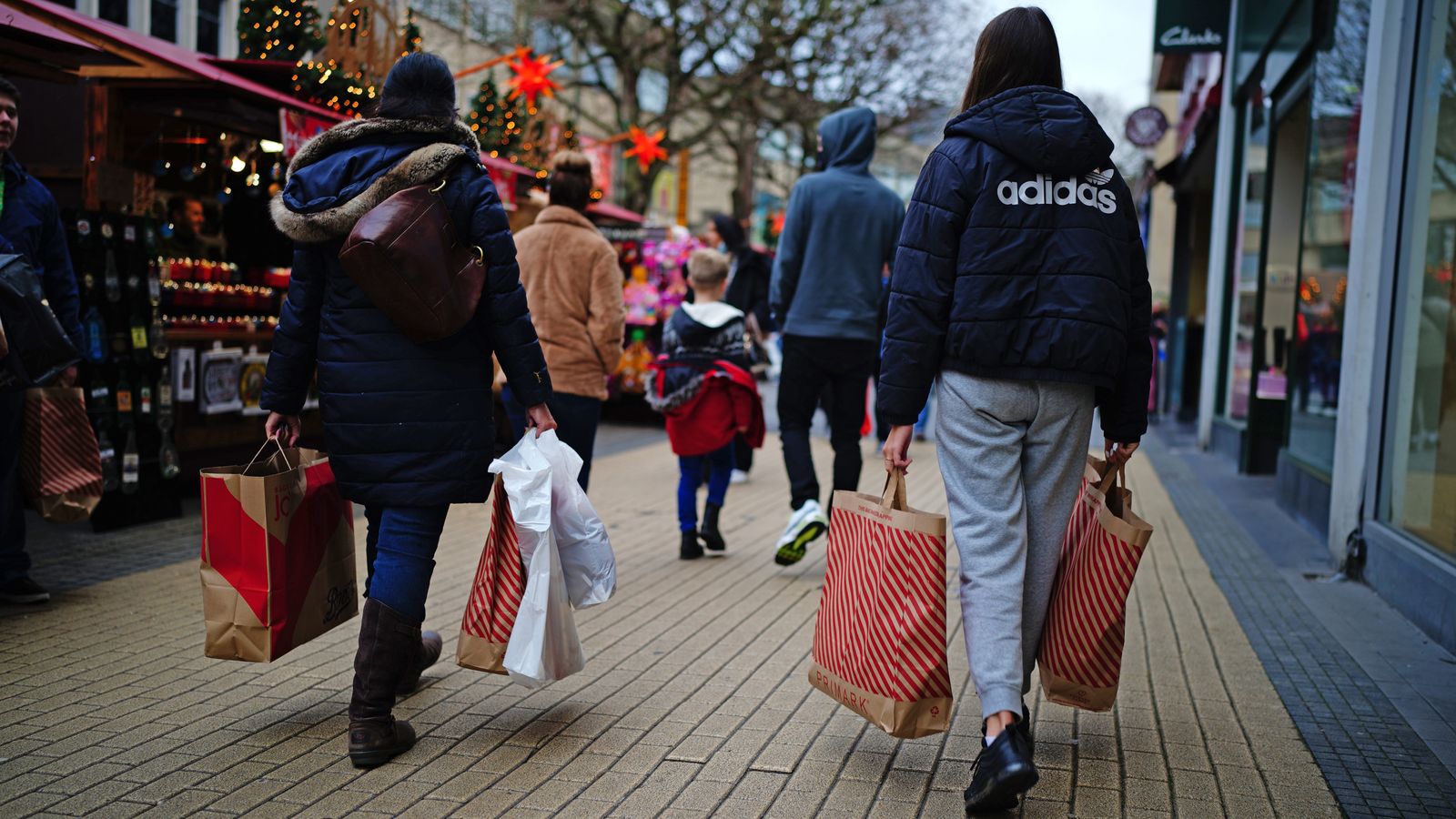The post-Christmas trading updates are now coming thick and fast and there are a few big themes that, it can confidently be said, are now starting to emerge.
The first of these is that the food retailers have done well.
The figures today from Tesco and from Sainsbury’s on Wednesday both point to a resilient performance. Ken Murphy, the Tesco chief executive, noted that 23 December was Tesco’s biggest day for sales in its history.
The German-owned hard discounters, Aldi and Lidl, have also grown sales strongly over Christmas although it is worth noting that much of their growth is coming from new store openings.
Unlike their more established UK competitors, neither Aldi nor Lidl publish ‘like-for-like’ sales figures, which strip out the impact of new store openings and refurbishments.
How rail strikes helped supermarkets
There are a couple of reasons why the supermarkets will have been doing well.
Tesco boss makes food inflation prediction as big retailers report Christmas progress
Encouraging high street numbers should be kept in perspective | Ian King
High street Christmas sales figures far exceed expectations
One is that, during the run-up to Christmas, the hospitality sector was hit severely by the rail strikes.
People who would have normally gone to pubs and restaurants for events like their office Christmas party were deterred from travelling and it appears they spent the money they saved in the supermarket.
The supermarket bosses should be sending ‘thank you’ letters to rail union leaders like the RMT’s Mick Lynch and Aslef’s Mick Whelan for giving their sales such a boost.
That is not, however, to downplay the self-help measures that both Sainsbury’s and Tesco have implemented.
Both have not passed on the full extent of the cost increases they have been seeing in food to customers but have taken the hit themselves in order to remain competitive.
Subtle language changes reflect price matching fixation
Both remain fixated on matching Aldi on the prices of many of their food lines. That is even borne out in the subtle change in language that both have used about their competitors, too, as has been noted by retail Kremlinologists.
Simon Roberts, the Sainsbury’s chief executive, on Wednesday referred to raising his market share against “full line competitors” – in other words, Tesco, Morrisons and Asda, but not Aldi and Lidl, who rivals refer to as “limited assortment” retailers because they do not stock as many products.
Mr Roberts also, in his investor presentation, highlighted how Sainsbury’s had been raising its prices more slowly than the other members of the traditional ‘big four’ and, in particular, how Lidl and Aldi appear to have been raising their food prices more aggressively than competitors of late.
This was something that Ken Murphy, the Tesco chief executive, also did today.
His trading statement claimed Tesco was the “only full-line grocer” to increase its market share against pre-pandemic figures. This again is a reference to what used to be called the ‘big four’.
Eyes on Morrisons
What sector watchers will be most keen to know is how Morrisons, in particular, fared over Christmas. It succumbed to a takeover bid just over a year ago and it has been suggested that the levels of debt it took on in the process have prevented it from competing as aggressively on price as once it did.
There is an expectation that it has been losing market share – although it is worth noting in passing that, according to the chart published this week by Sainsbury’s, that Morrisons has been raising prices on its biggest lines far more slowly than most of its rivals, including Aldi and Lidl.
One last point to make on food is that Marks & Spencer appears to have enjoyed a very solid Christmas.
Its UK food sales were up by 10.2% during the 13 weeks to New Year’s Eve and by a very creditable 6.3% on a like-for-like basis.
M&S traditionally always sees its share of the food market increase in the run-up to Christmas as shoppers trade up.
That certainly appears to have happened again this year: Stuart Machin, on the back of his first Christmas as chief executive, will have been pleased to note today that M&S had market leadership in turkeys for the third consecutive year.
Strong Christmas for clothes
The second big theme to highlight is that it has been a good Christmas for clothes sales, as has been borne out by strong trading updates from Next, JD Sports and today from M&S, which pointed out that its market share in clothing and home sales – the most problematic part of the business for many years – was more than 10% during the period, its highest level since 2015.
There are a couple of reasons why clothing sales may have done well.
One is that the weather in December was very cold, which will have benefited sales of seasonal lines, such as coats and jumpers.
How lower inflation helped make clothes good value
The other is that clothing will have represented good value this year. As the British Retail Consortium figures published last week highlighted, non-food inflation in November was running at 4.8% and in December at 4.4%.
That is not only appreciably lower than the headline rate of inflation, it is also lower than the average rate at which pay has been growing. Clothes will have represented good value this year as Christmas presents.
This uptick in clothing sales appears to have been strongest among physical retailers.
More help from strikes
Some people appear to have been deterred by the strikes afflicting Royal Mail from shopping online, as borne out by the update today from Asos, the leading online-only fashion retailer, whose UK sales during the four weeks to New Year’s Eve were down 8% on 2021.
The third over-riding theme is that, so far, Christmas for retailers has proved significantly better than had been feared.
Why a lot of people got air-fryers for Christmas
AO World, the online electrical goods retailer, lifted its full-year earnings forecast pretty dramatically earlier this week after enjoying a solid performance in the final three months of the year.
It and its rival Marks Electrical have both done well – which has raised hopes among investors that Currys, the market leader, also enjoyed a good Christmas.
Its shares are up by more than 17% since the start of the year.
What will be interesting to see, when Currys updates the market, is whether its sales mix continues to reflect the changes it and others have noted in recent months.
It does not look to have been a particularly strong Christmas for tech – reflecting in part a lacklustre line-up of new product releases from the industry’s big guns – but sales of energy-saving products have been doing well.
A lot of people, it seems, will have received an air-fryer for Christmas.
Why so strong? The main reason appears to be that UK households are far from having burned through the billions of pounds worth of savings enforced on them during the pandemic when lockdowns prevented millions from going out or going on holiday.
Paying more for fewer goods
To that, though, must be added a couple of caveats. One is that inflation will have flattered sales numbers. As the BRC pointed out this week, retail sales values in December were up by nearly 7% in 2021, but the volume of goods was “significantly down”.
In other words, people were paying more for fewer goods.
The other caveat is to note how cautious most of the trading updates have been about trade in coming months.
Lord Wolfson of Next said last week that he expects both sales and profits for the next financial year to be down on the one just ending, reflecting a series of pressures, including ongoing inflation in essential goods and particularly energy, as well as rising mortgage costs.
The Office for National Statistics pointed out this week that more than 1.4 million UK households will this year be coming off fixed-rate mortgages that, in the majority of cases, were set at below 2%.
Their new mortgages will be at significantly higher interest rates and that will reduce the disposable incomes of those households affected by several hundred pounds each month.
That is why, despite some strong Christmas showings in many cases, retailers remain exceptionally cautious.












